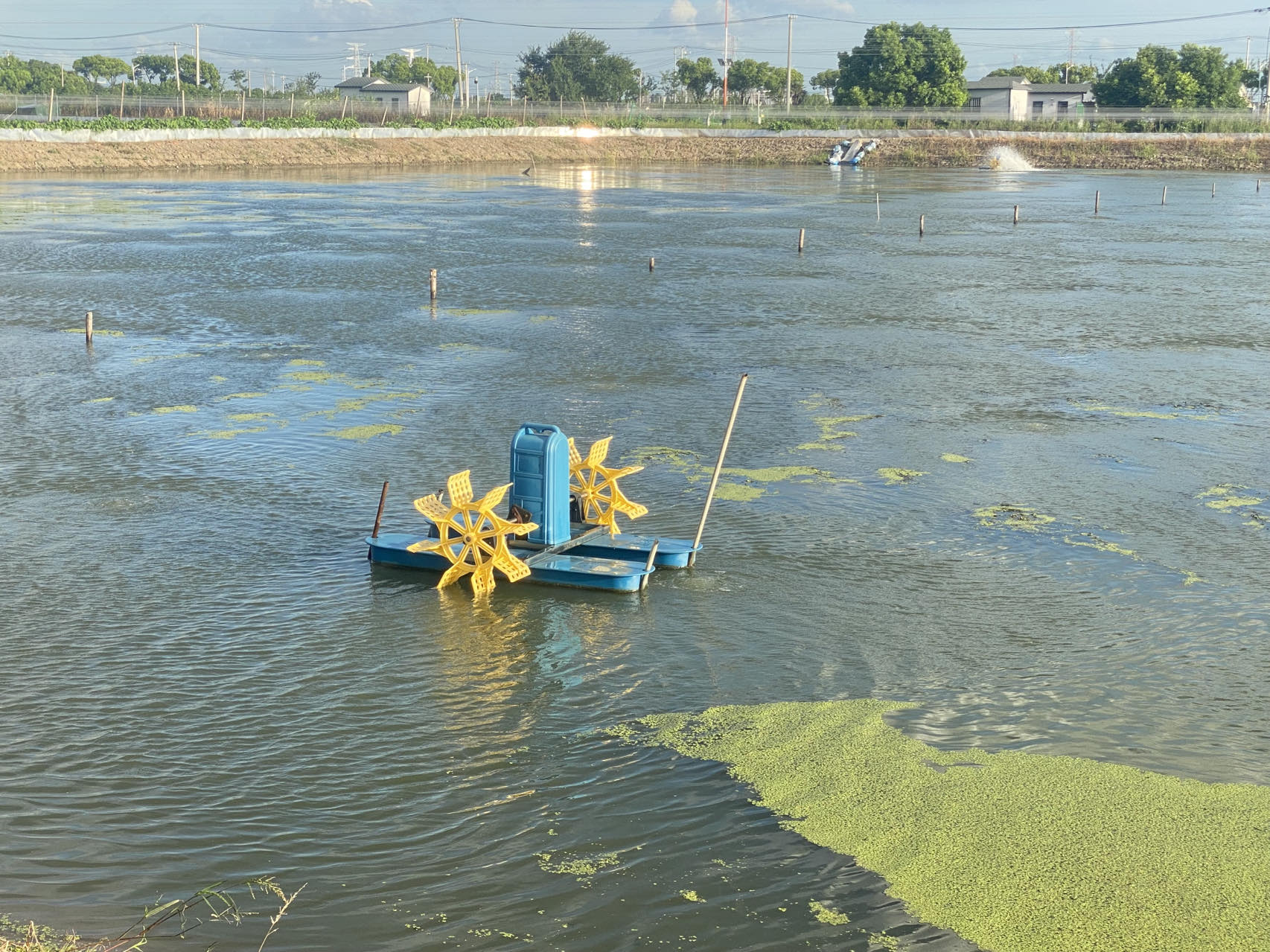 ?
?
An air pump works to provide the crab pond with oxygen in Xiadong village, which is especially vital in hot weather for crabs' health. (PHOTO: S&T Daily)
By?CHEN?Chunyou
The advent of 5G technology has brought higher interconnectedness, and allowed people to gain new experiences, ultimately making their lives smarter and easier.
Huayuan, a village in east China's Jiangsu province, is renowned for its textile industry's distinctive yarn-dyeing process. Now thanks to 5G services, it can get more international business.
The 5G New Calling service ensures a reliable communication signal and even offers real-time language translation during video calls. This has facilitated communication, leading to increased foreign business deals and incomes for the locals.
Access to healthcare has been revolutionized. "Villagers no longer need to take multiple transports and travel long distances to urban areas to see a doctor," Wu Yuzhou, party secretary of Shuangwan village in Suzhou city, told S&T Daily. The village achieved 5G coverage in 2019. Patients can now receive remote diagnostics services and health advice at the village clinic itself.
The clinic staff help them to make appointments and connect them online with doctors in urban hospitals. Digitalized health records and data analytics help doctors deliver more personalized care. This has improved medical efficiency and resulted in better control of chronic diseases among villagers.
5G has also brought benefits to crab breeders as it enables a faster transmission speed of water quality conditions of a crab pond onto an online platform. The breeders can monitor all these data on this platform through an application.
Shao Wenming, a crab breeder in Xiadong village, Kunshan city, leased a crab pond of about 670 m2 from other farmers this year. He uses the app to manage his pond, monitoring key parameters such as the water temperature, quality and oxygen content. "If the oxygen content is low, the app will send a reminder to my phone, I can raise the level remotely. With sophisticated technology, the quality of the crab meat has also improved," said Shao.
In the past, due to a shortage of manpower, Shao hardly left the pond as it required meticulous attention. But technology has given him more free time. Shao and other breeders do not have to be near their ponds for constant monitoring, enjoying greater convenience in the breeding process.
At the Port of Zhenjiang in Jiangsu province, ships enjoy signals even when they are in the middle of the river because of the row of 5G stations along the bank. This has enhanced communication between the crews and the land, leading to quicker response during emergencies and greater safety.
Previously, workers had to inspect equipment and record operation data manually in the equipment room of their vessels, where the temperature could rise to 44 °C. "Now, all data is transmitted by the 5G network and workers can remotely monitor the data on a computer screen. This has made daily equipment checks more efficient and improved working conditions," said Ji Peng, manager of the equipment service department at a branch company affiliated with the Zhenjiang Port Group.
The trio will conduct a series of experiments in fields such as life science, fluid physics, combustion science and materials science. Notably, this is the first time that fruit flies have been taken on a Chinese space mission as experimental subjects. What made scientists choose fruit flies? What experiment will they undergo?
